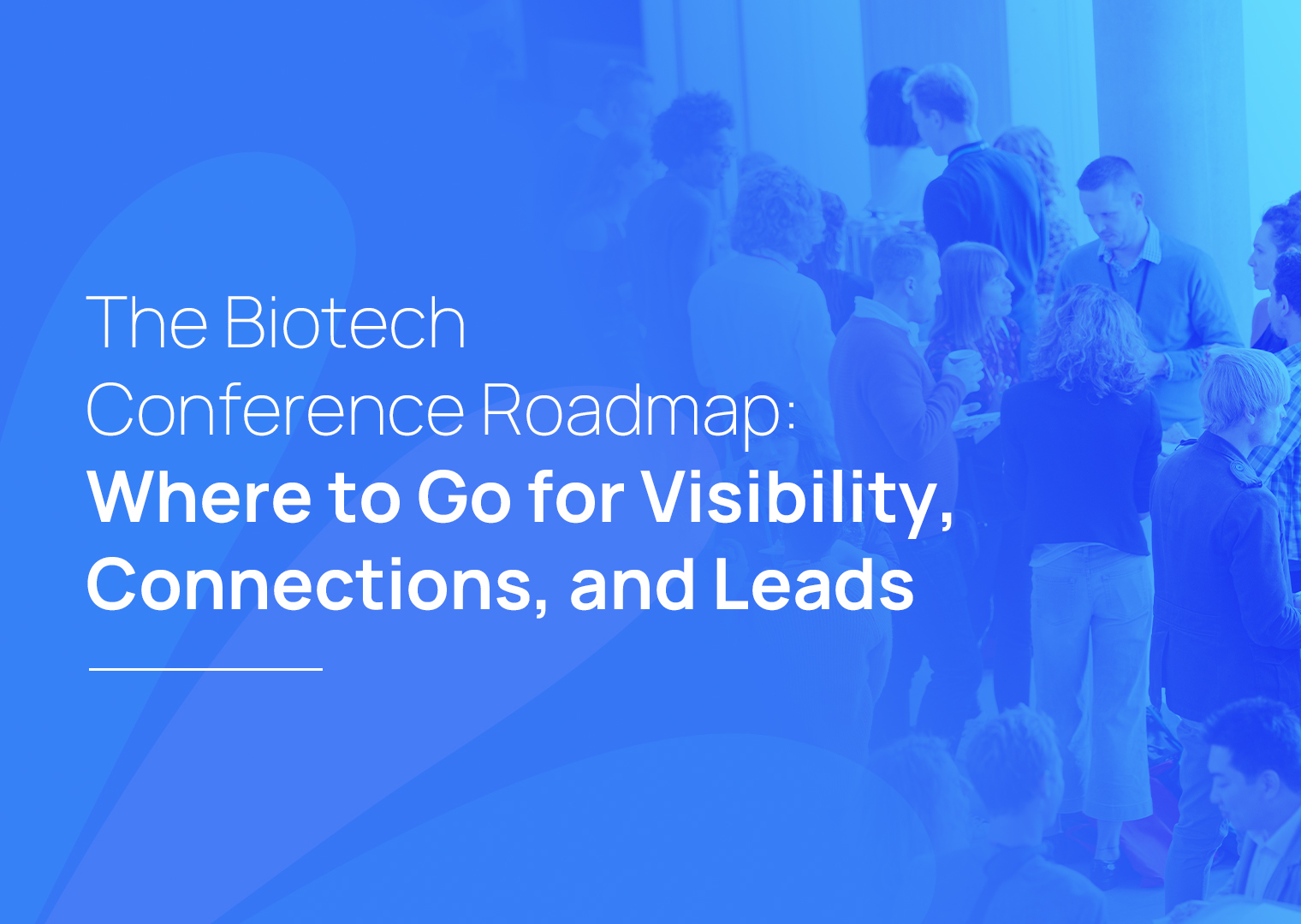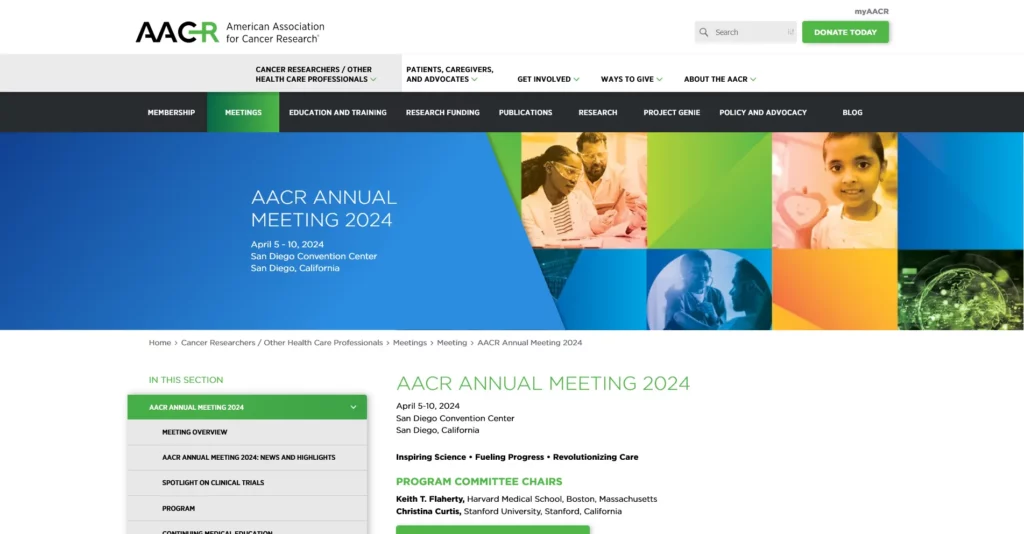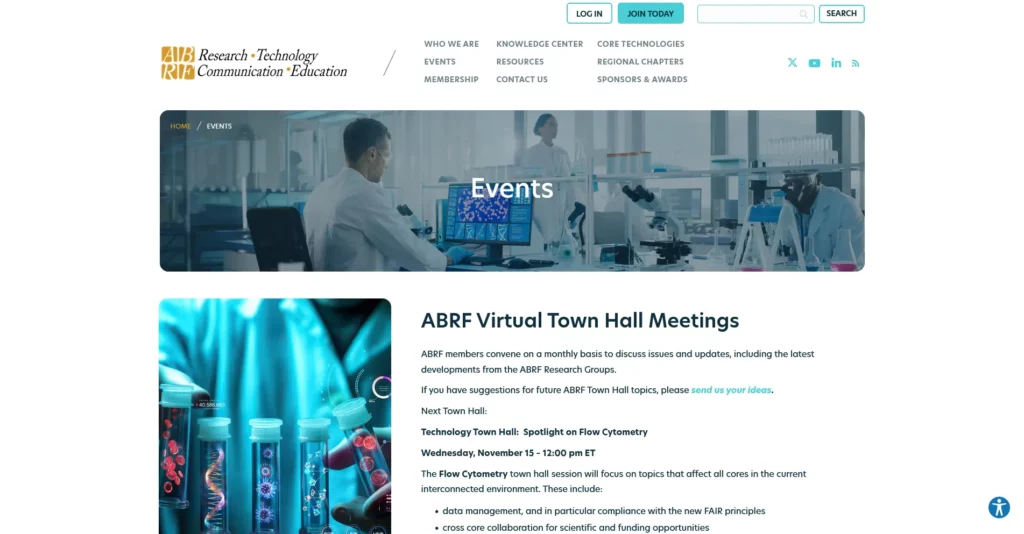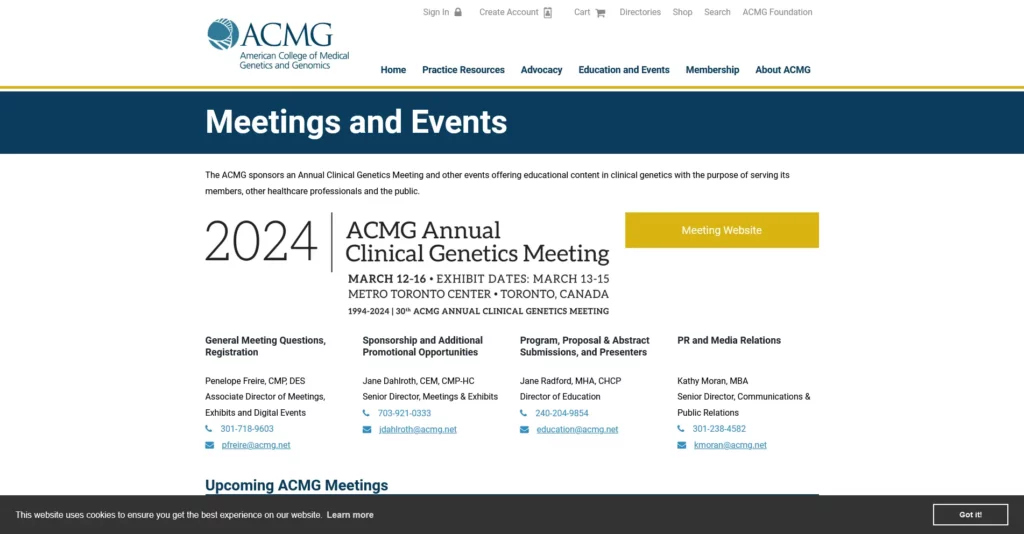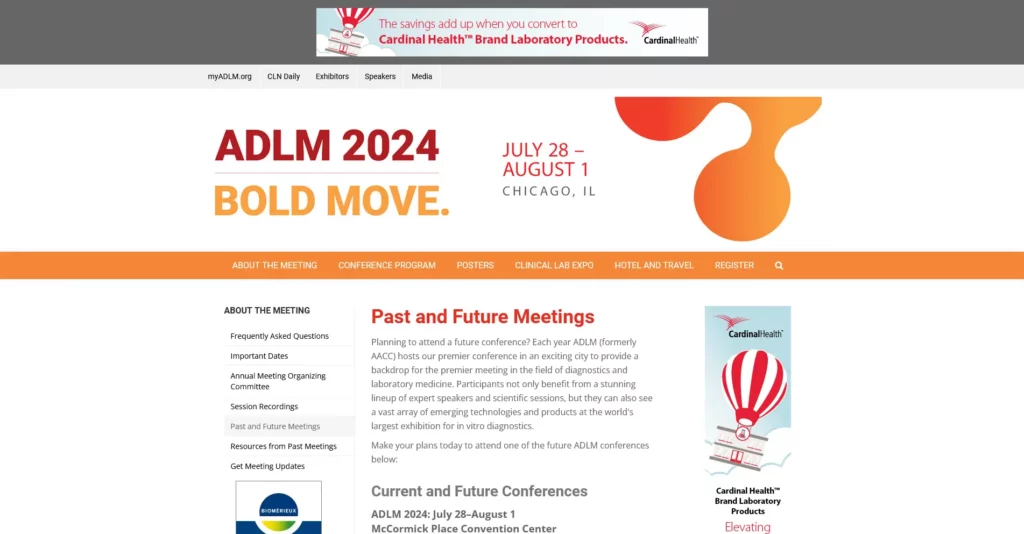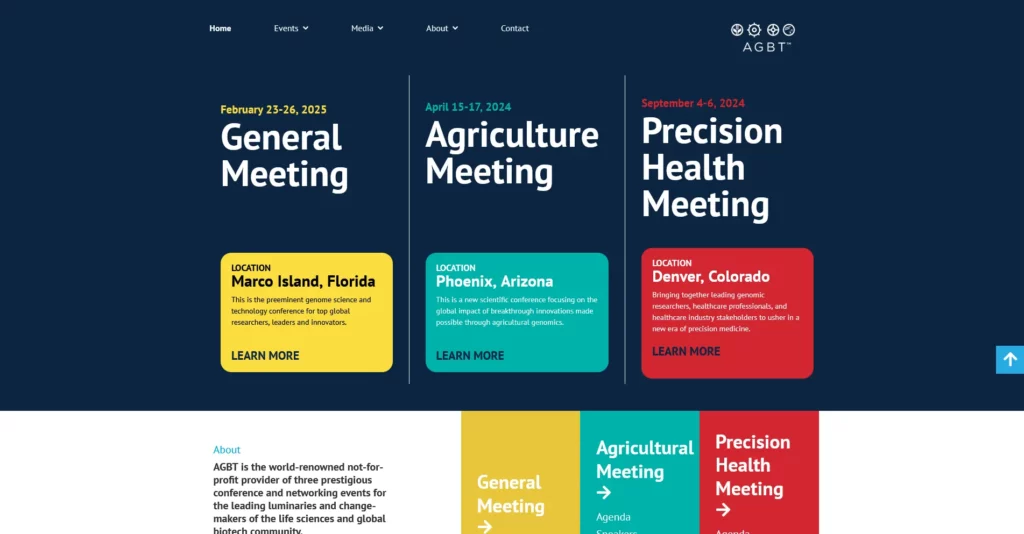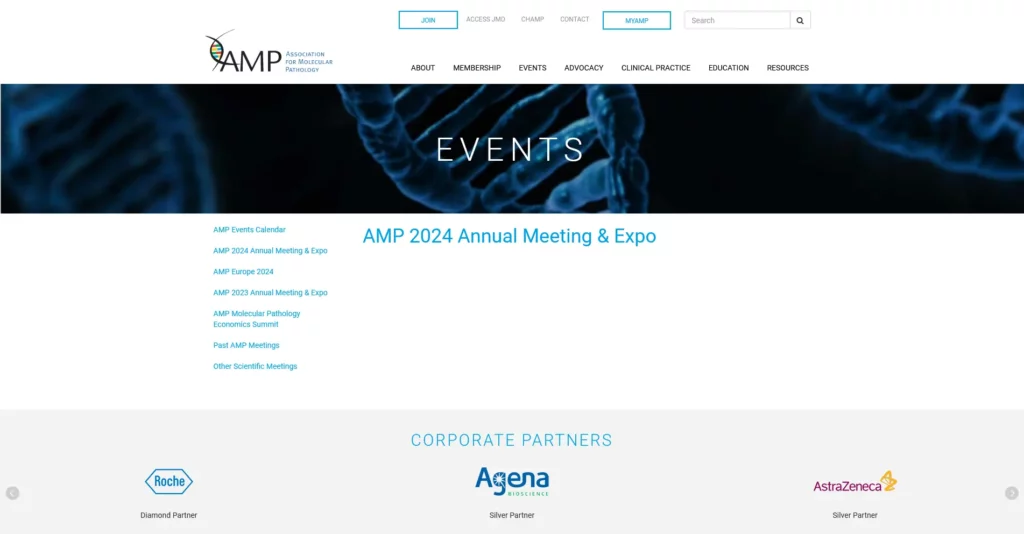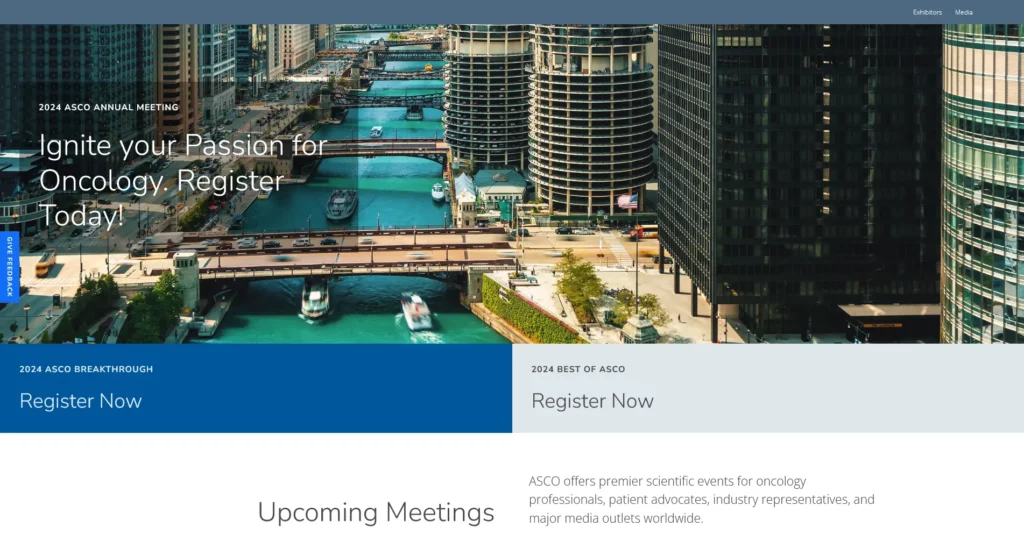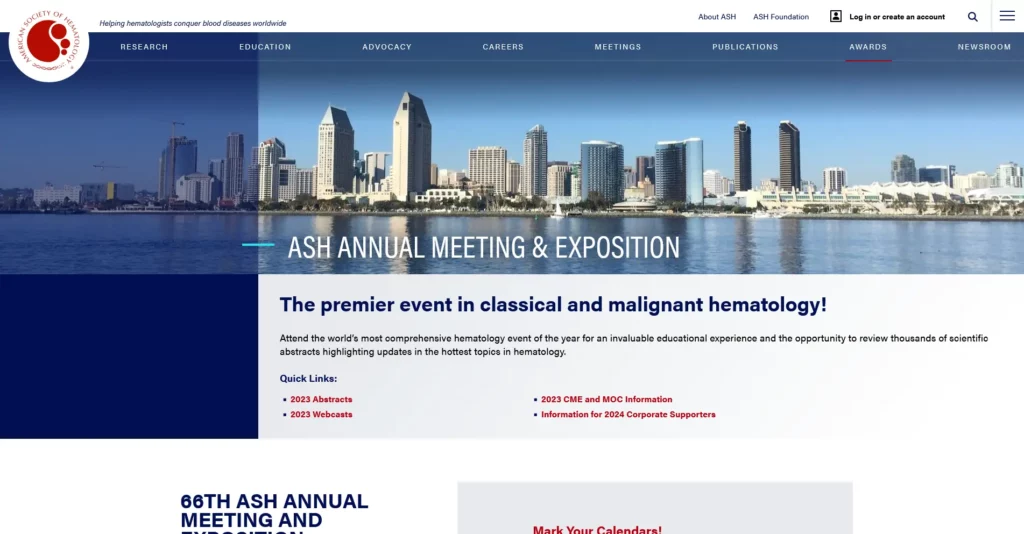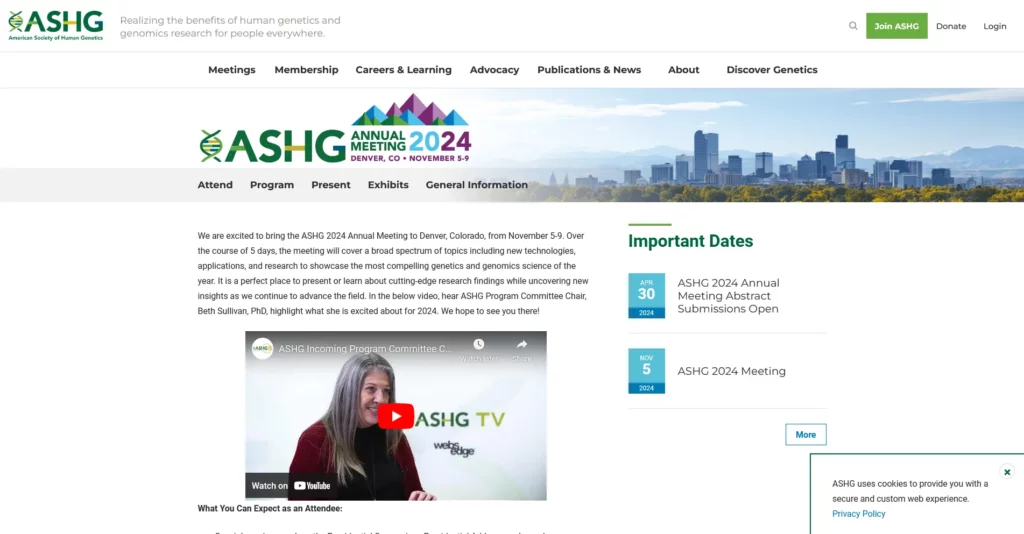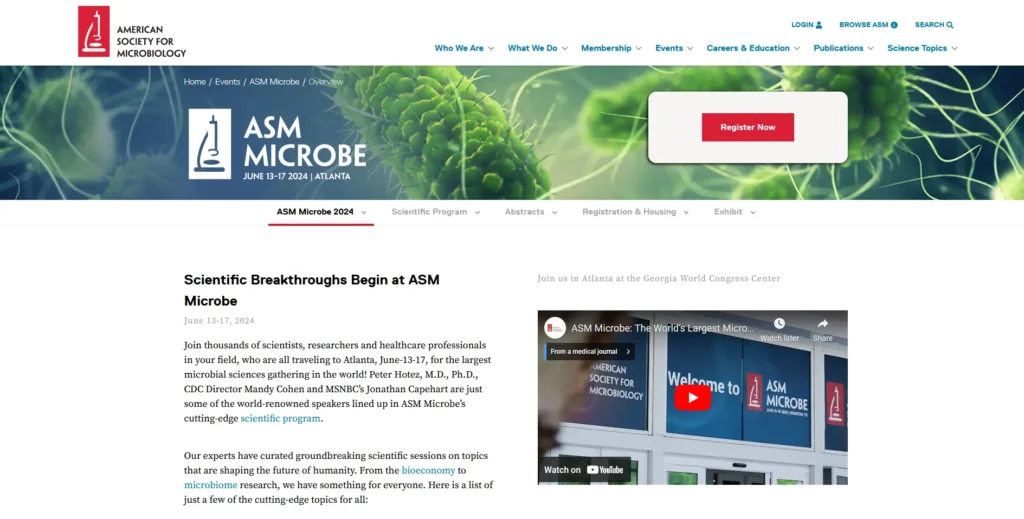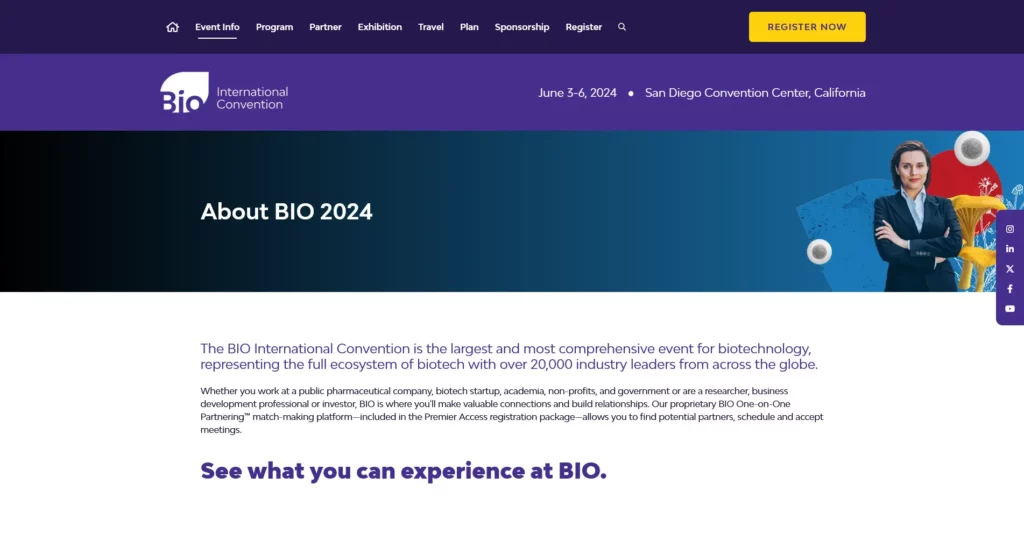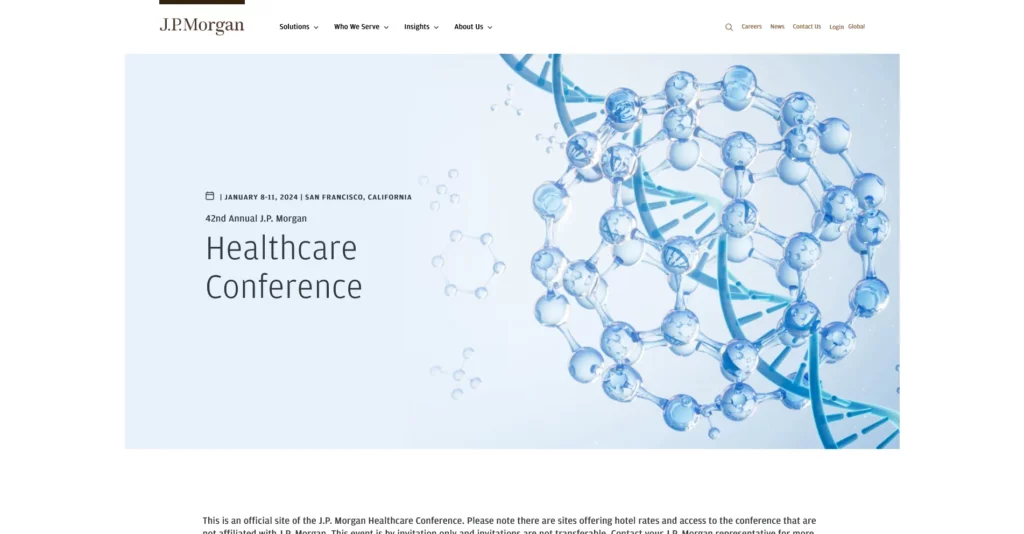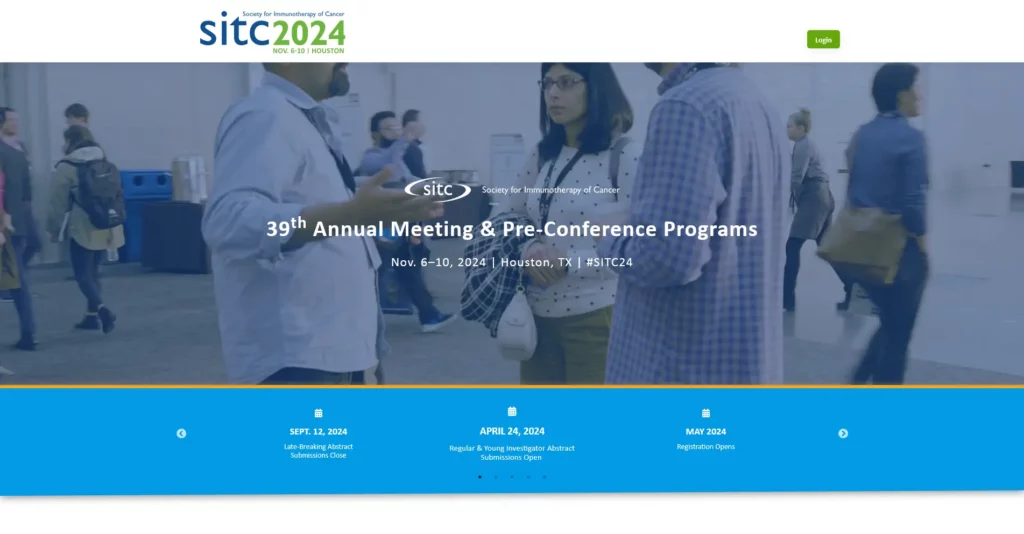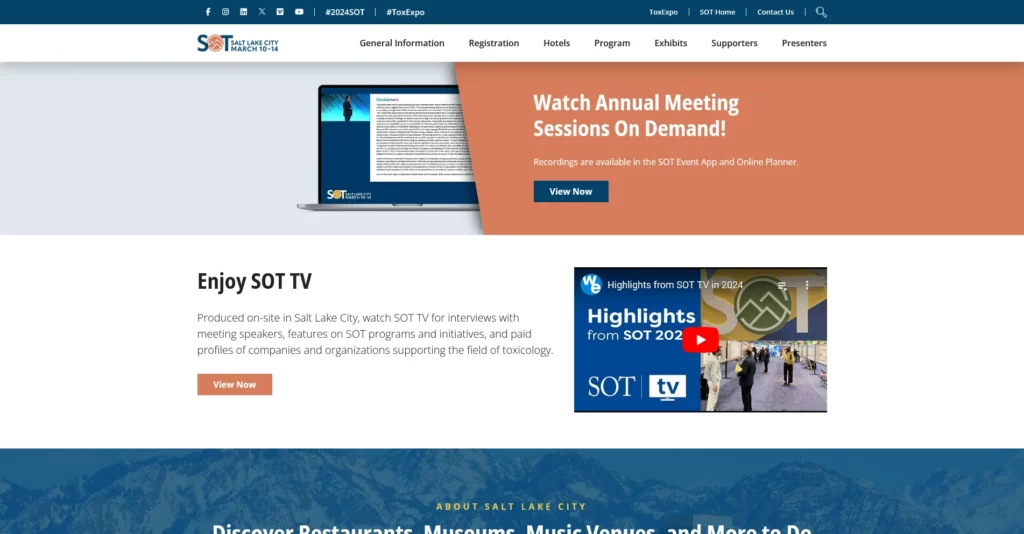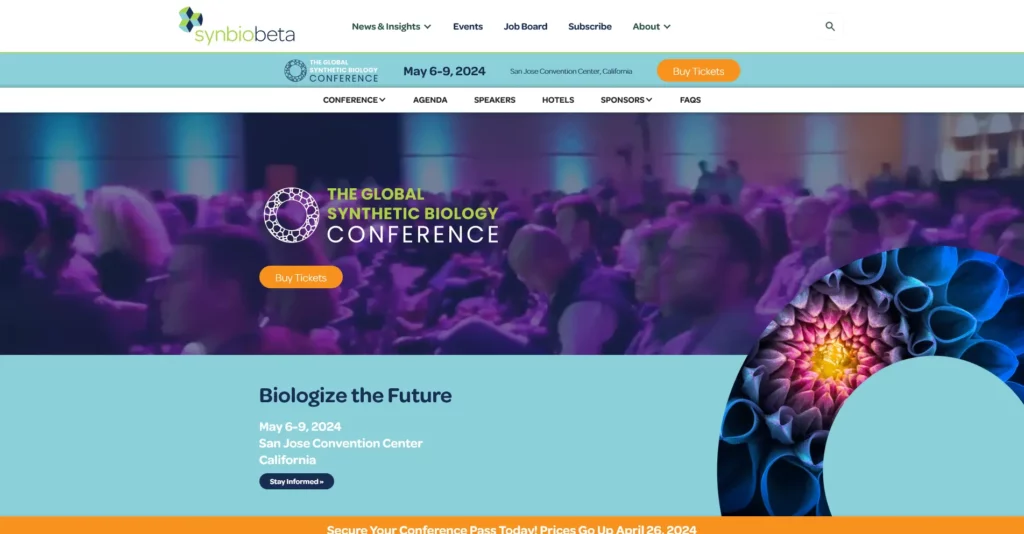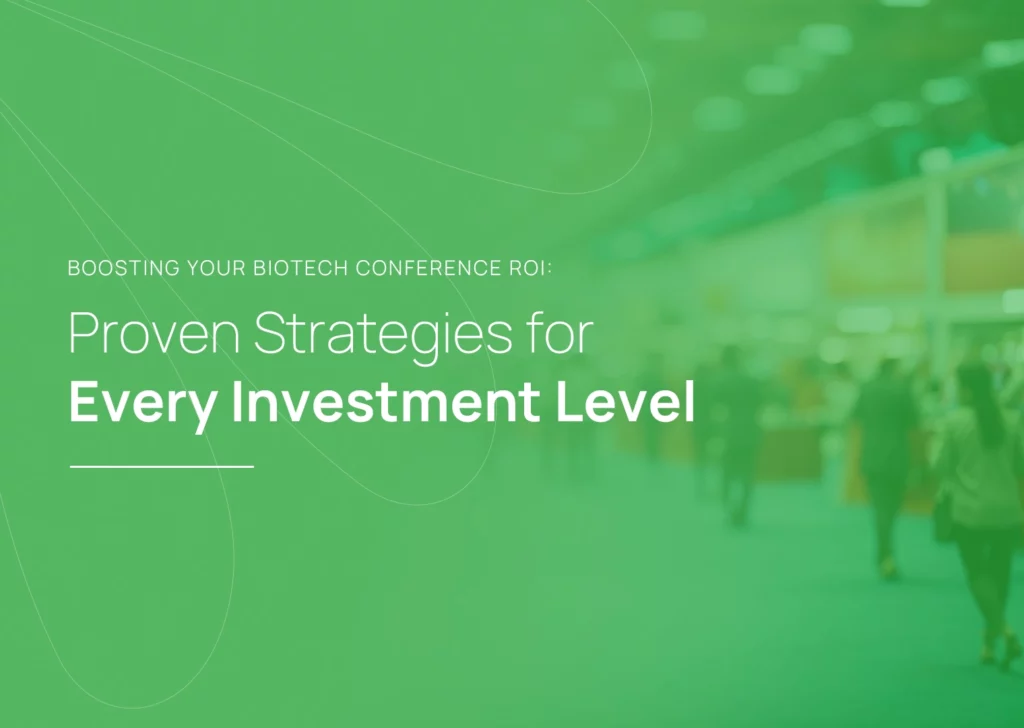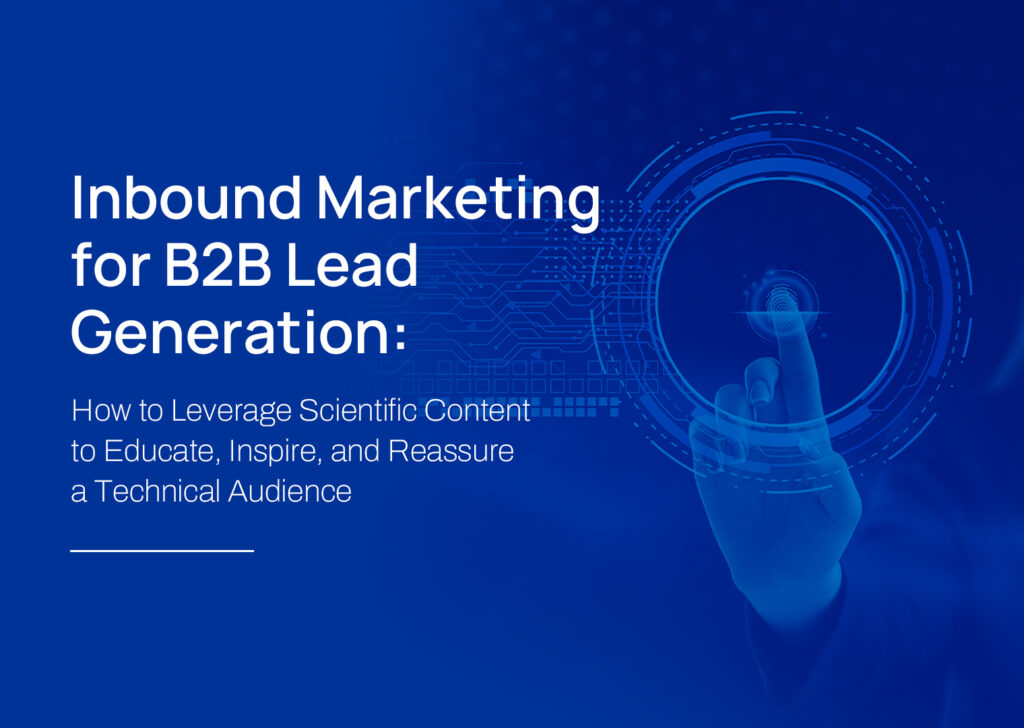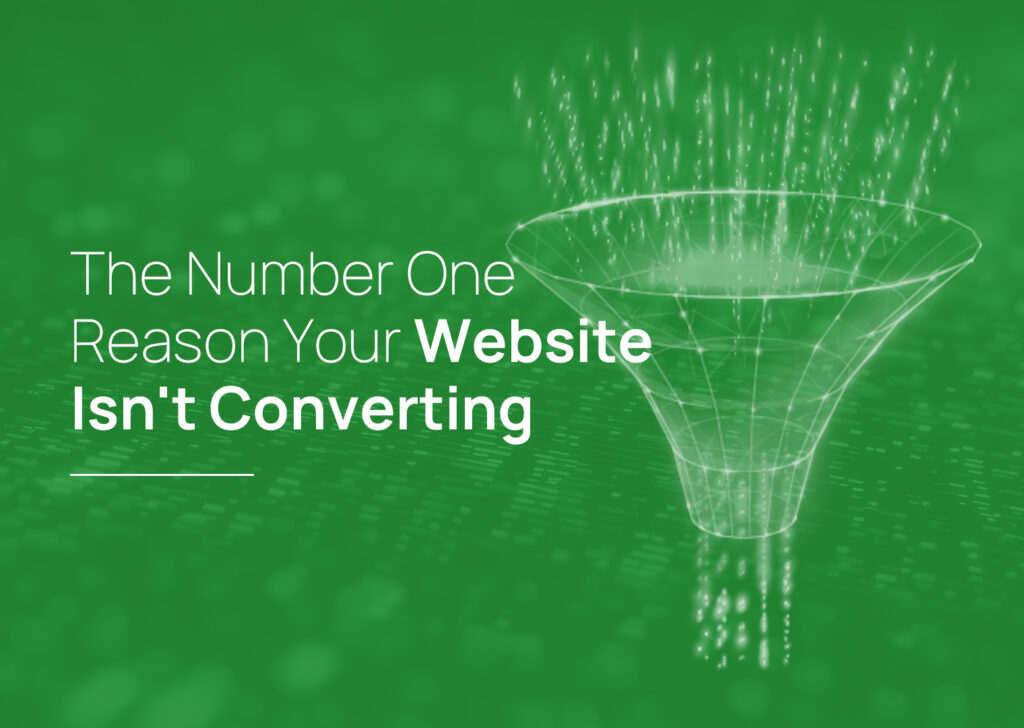For biotechnology companies looking to raise their profile, connect with potential partners, showcase recent innovations, and generate high-quality leads, attending the right industry conferences is a must. With conference season in full swing, now is the time to plan your strategy and get these marquee events on your calendar.
Whether you’re an established biotech innovator or an emerging startup, carefully selecting which conferences to attend (and invest your marketing dollars in) is crucial. You want to ensure you’re reaching the most relevant audiences of researchers, investors, potential clients, and collaborators.
To help guide your planning, we’ve highlighted some of the biggest and most important biotechnology conferences happening over the next year. These events represent prime opportunities for growing brand awareness, networking, and prospecting in the biotech space.
Here are some of the premier annual biotech events you won’t want to miss!
The AACR (American Association for Cancer Research) Annual Meeting is one of the leading events for biotech companies working in oncology research and cancer therapies, attracting a large, highly targeted audience of over 22,000 cancer researchers, physicians, other healthcare professionals, scientists, industry representatives, advocates, and investors from around the world.
The comprehensive scientific program covers the latest breakthroughs across all areas of cancer research – biology, prevention, early detection, etiology, treatment, and survivorship. Specific areas of focus include breakthrough cancer treatments and clinical trials, immuno-oncology and immunotherapies, tumor biology, cancer genomics, and molecular targets.
The ABRF (Association for Biomolecular Resource Facilities) Annual Meeting is a leading event for companies and organizations involved in providing core biotechnology resources and services. The ABRF meeting draws directors, managers, technicians, and researchers from core biomolecular resource laboratories and facilities at universities, research institutes, government agencies, and biotech/pharma companies.
The program covers implementation and application of the latest technologies, techniques, and best practices across all the major biomolecular resource disciplines, such as next-generation genomic sequencing, mass spectrometry-based proteomics, metabolomics and lipidomics, microscopy and bioimaging, biostatistics and computational biology, robotics and high-throughput screening, and biobanking and repositories. There are dedicated tracks exploring new instruments, data analysis tools, resource management, training, and more.
The ACMG (American College of Medical Genetics and Genomics) Annual Clinical Genetics Meeting is a prime event for biotech companies working in genetic testing, genomics, and precision medicine. The ACMG meeting attracts over 2,500 medical and clinical geneticists, genetic counselors, researchers, lab directors, and other genetics professionals.
The comprehensive program covers all aspects of medical genetics/genomics, with a focus on translating genomic discoveries into clinical practice. Core topics include hereditary cancers, prenatal and reproductive genetics, molecular genetics, cytogenetics and genomic technologies, bioinformatics and interpretation, genetic testing, and ethical/legal issues.
The ADLM (Association for Diagnostics & Laboratory Medicine) Annual Meeting (formerly, the American Association for Clinical Chemistry (AACC) Annual Scientific Meeting & Clinical Lab Expo) is a valuable conference for biotech companies involved in mass spectrometry, clinical diagnostics, molecular diagnostics, and related fields. ADLM attracts clinical lab directors, managers, and chemists working in clinical laboratories, hospitals, commercial labs, research institutions, regulatory agencies, and industry.
The meeting covers the latest developments in disease testing, therapeutic drug monitoring, clinical toxicology, endocrinology, inborn errors of metabolism, and more. Specific areas of focus include new mass spectrometry technologies, quantitative analysis methods and workflows, sample preparation techniques, data analysis, software, and bioinformatics tools, regulatory issues and quality control, and specialized testing in newborns, forensics, microbiology, and more.
The AGBT (Advances in Genome Biology and Technology) General Meeting is a premier conference for biotech companies involved in genomics, sequencing technologies, and applications of genomic analysis. AGBT draws a global audience of leading scientists, technologists, physicians, and industry professionals from top academic, government, and private sector research organizations working at the cutting edge of genomics and molecular biology research. It also draws investors interested in partnering with companies advancing genomic technologies.
The meeting centers largely on novel methods, instrumentation, and data analytics driving genomic discovery. A wide range of genomics applications are featured including next-generation and emerging sequencing platforms, single-cell genomics and multi-omics technologies, computational genomics and bioinformatics, large-scale genome projects and population studies, precision medicine and clinical genomics, genome editing tools like CRISPR, epigenomics and gene regulation, and agricultural, environmental, and microbial genomics.
The AMP (Association for Molecular Pathology) Annual Meeting & Expo is a valuable conference for biotech companies involved in molecular diagnostics, genomic medicine, and precision health. AMP attracts molecular pathologists, clinical geneticists, researchers, test developers, and other professionals focused on applying genomics to improve patient care. Attendees come from hospitals, academic medical centers, commercial labs, biotech/pharma companies, and regulatory agencies.
The program covers the latest advances in molecular pathology and genomic medicine across areas such as next-generation sequencing for diagnostics, hereditary cancer and somatic genomic testing, non-invasive prenatal screening, microbial genomics and infectious disease, bioinformatics tools for genomic analysis, pharmacogenomics and companion diagnostics, regulatory issues in molecular testing, and reimbursement and health economics. There are also dedicated tracks on specific clinical applications like hematology, solid tumors, reproductive health, and more.
The ASCO (American Society of Clinical Oncology) Annual Meeting is one of the largest and most important conferences for biotech companies working in cancer research, therapeutics, and diagnostics. ASCO draws over 40,000 attendees, including leading oncologists, researchers, patient advocates, and industry representatives from around the world.
The comprehensive scientific program covers cutting-edge advances across all cancer types and specialties. Key areas of focus include new cancer therapeutics and treatment modalities, immuno-oncology and immunotherapies, precision oncology and molecular profiling, tumor biology and systems genetics, and clinical trials showcasing the latest research data. Additional topics include artificial intelligence/deep learning models for data analysis, novel preclinical models, antibody drug conjugates, minimal residual disease detection, and advancements in prevention, patient care, survivorship, and quality of life.
The ASH (American Society of Hematology) Annual Meeting is a leading event for biotech companies working in hematology, blood disorders, and related therapeutic areas. ASH attracts over 25,000 hematologists, oncologists, and researchers from hospitals, cancer centers, biotech/pharma industry, government agencies, and academic institutions around the globe.
This event covers the latest breakthroughs across all areas of non-malignant and malignant hematology. Specialized scientific tracks, educational sessions, and clinical study results are presented to include areas such as leukemias, lymphomas, and blood cancers, bleeding and clotting disorders, bone marrow transplantation, sickle cell disease and thalassemias, myeloid diseases and myeloma. Novel cellular therapies and immuno-oncology as well as advances in genomics and precision hematology are featured.
The ASHG (American Society of Human Genetics) Annual Meeting provides excellent opportunities for biotech companies involved in human genetics, genomics, and precision medicine. ASHG brings together over 6,500 human genetics professionals from around the world, including leading geneticists, researchers, genetic counselors, clinicians, ethicists, and industry representatives.
This conference features the latest findings in Mendelian and complex disease genetics, cancer genomics, developmental genetics, cytogenetics, and chromosomal disorders. Innovations in gene editing/engineering, gene therapy, pharmacogenomics, precision medicine, bioinformatics, sequencing technologies, and omics are highlighted.
The ASM Microbe meeting (organized by the American Society for Microbiology) provides excellent opportunities for biotech companies working in microbiology, infectious diseases, antimicrobials, and related fields. ASM Microbe attracts over 10,000 attendees from the microbial sciences community including microbiologists, immunologists, virologists, molecular biologists, clinicians, and public health professionals, as well as biopharma, environmental, and commercial manufacturing representatives.
The meeting encompasses all areas of microbiology including emerging and re-emerging infectious diseases, antimicrobial resistance and novel antimicrobials, host-microbe interactions and microbial pathogenesis, clinical microbiology and diagnostic testing, virology and viral pathogenesis, environmental microbiology and microbial ecology, microbial biotechnology and industrial applications, and microbiome research across human, animal, and plant hosts.
The BIO International Convention is one of the largest and most comprehensive events for biotech companies across all sectors of the life sciences industry. BIO attracts a truly global audience of over 20,000 attendees including biotech/pharma executives, investors, academic researchers, patient advocates, regulators, service providers, and other industry stakeholders.
The comprehensive program covers the full spectrum of life sciences innovation, highlighting advancements in drug discovery and development across therapeutic areas, emerging biotechnology fields (genomics, gene editing, cell/gene therapies), digital health, AI, and tech convergence, global preparedness, industrial and environmental biotechnology, bioprocessing and manufacturing, regulatory affairs and policy, business development, investments and commercialization strategies, and patient advocacy and access.
The J.P. Morgan Healthcare Conference is a premier investment conference focused on the biotechnology, pharmaceutical, and healthcare sectors. This invitation-only event attracts leading institutional investors, venture capitalists, investment bankers, and senior executives from major biotech, pharma, and healthcare companies globally. It’s one of the industry’s largest annual investor meetings.
This conference is an important opportunity for companies looking to raise capital or secure partnerships as it allows biotech firms to gain exposure and tell their corporate story directly to an elite audience of investors, analysts, and industry influencers. While the agenda centers around corporate presentations and updates from participating companies, key topics highlighted include the state of the biotech/pharma industry and market outlook, innovative drug pipelines and promising therapeutic areas, emerging technology platforms (e.g. cell & gene therapy, RNA therapeutics), corporate strategy updates, healthcare pricing, reimbursement and policy issues, and investment trends and opportunities.
The SITC (Society for Immunotherapy of Cancer) Annual Meeting focuses on advancements in the rapidly developing field of immuno-oncology and cancer immunotherapy development. SITC attracts researchers, clinicians, allied health professionals, pharmacists, biotech and pharma professionals, regulators, patient advocates, and other experts dedicated to advancing cancer immunotherapies. The audience consists of key opinion leaders, academic investigators running immunotherapy trials, clinical developers, and industry decision-makers in this specialized field.
The comprehensive scientific program covers the latest advances across all areas of tumor immunology and cancer immunotherapy, such as checkpoint inhibitors and costimulatory pathways, adoptive cell therapies (CAR-T, TCR, TIL, etc.), oncolytic viruses and cancer vaccines, innate and adaptive anti-tumor immunity, combination immunotherapies, biomarkers and resistance mechanisms, emerging targets and novel platforms, and toxicity management.
The SOT (Society of Toxicology) Annual Meeting brings together toxicologists, pharmacologists, risk assessors, regulatory experts, and other professionals from industry, academia, and government agencies focused on evaluating the safety and potential toxicity of drugs, chemicals, and other substances.
The latest research and best practices in drug discovery toxicology and safety evaluation, computational toxicology and modeling, genetic, epigenetic, and molecular toxicology, nanotoxicology and emerging material toxicity, toxicity testing methods and biomarkers, exposure science and risk assessment, regulatory toxicology and submissions, and medical device biocompatibility are presented. In addition, there are specific tracks dedicated to carcinogenesis, reproductive/developmental toxicity, neurotoxicology, and more.
The Global Synthetic Biology Conference is a key event for biotech companies involved in the field of synthetic biology and related areas like gene editing, metabolic engineering, biomaterials, and therapeutic development. This conference draws scientists, engineers, entrepreneurs, investors, policymakers, and other stakeholders at the forefront of synthetic biology research and commercialization efforts. Attendees come from universities, startups, established biotech/pharma companies, government agencies, and investment firms operating in the synthetic bio space.
Key topics covered in this meeting include advances in gene editing tools like CRISPR, cell-free biomanufacturing systems, synthetic genomics and genome design, biosensors and biocomputing, and synthetic biology applications in healthcare, agriculture, energy, and materials. Commercialization strategies, venture investment, as well as the ethical, legal, and biosecurity issues in synthetic biology are also addressed.
Make a plan to see—and be seen
Biotech is a highly competitive sector, so it’s important to make your company stand out. To raise your profile at these events, consider:
- Hosting an exhibition booth
- Holding a spotlight session
- Presenting research posters
- Conducting workshops
- Sponsoring social events
Samba Scientific specializes in conference support to help you make the most of each event. We design eye-catching exhibition booths, create conference handouts and fun swag, promote your attendance through engaging social and email campaigns, polish presentation decks, and secure venues for memorable parties that help you make valuable connections.
Reach out for a free consultation on how we can help you prepare for your next scientific conference.
